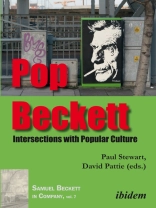When Samuel Beckett’s work first appeared, it was routinely described, by Adorno amongst others, as a clear example of European high culture. However, this judgement ignored an aspect of Beckett’s work and its reception that is, arguably, not yet fully understood; the intimate relation between his work and popular culture. Beckett used popular cultural forms; but popular culture has also found a place both for the work and for the man. This collection of essays examines how popular cultural forms and media are woven into the fabric of Beckett’s works, and how Beckett continues to have far-reaching impact on popular culture today in a host of different forms, in film and on television, from comics to meme culture, tourism to marketing.
Sobre o autor
Paul Stewart is Professor of Literature at the University of Nicosia. He is the author of two books on Beckett—Sex and Aesthetics in Samuel Beckett’s Works (Palgrave, 2011) and Zone of Evaporation: Samuel Beckett’s Disjunctions (Rodopi, 2006)—and the series editor for ‘Samuel Beckett in Company’, published by ibidem Press. He has published widely on Beckett in such journals as The Journal of Beckett Studies and Samuel Beckett Today / Aujourd’hui. He is also a creative writer (his novel Now Then was published by Armida in 2014) and a performer in theatre, television, and film.
David Pattie is Senior Lecturer in Drama at the University of Birmingham. He is the author of three books (The Complete Critical Guide to Samuel Beckett (2001), Rock Music in Performance (2007), and Modern British Playwrights: the 1950s (2012)). He has also co-edited two books with Sean Albiez: Kraftwerk: Music Non-Stop (2010) and Brian Eno: Oblique Music (2016). Furthermore, he was part of the Staging Beckett research project, and he has published extensively on Beckett, contemporary performance, popular culture, popular music, and Scottish theatre.












